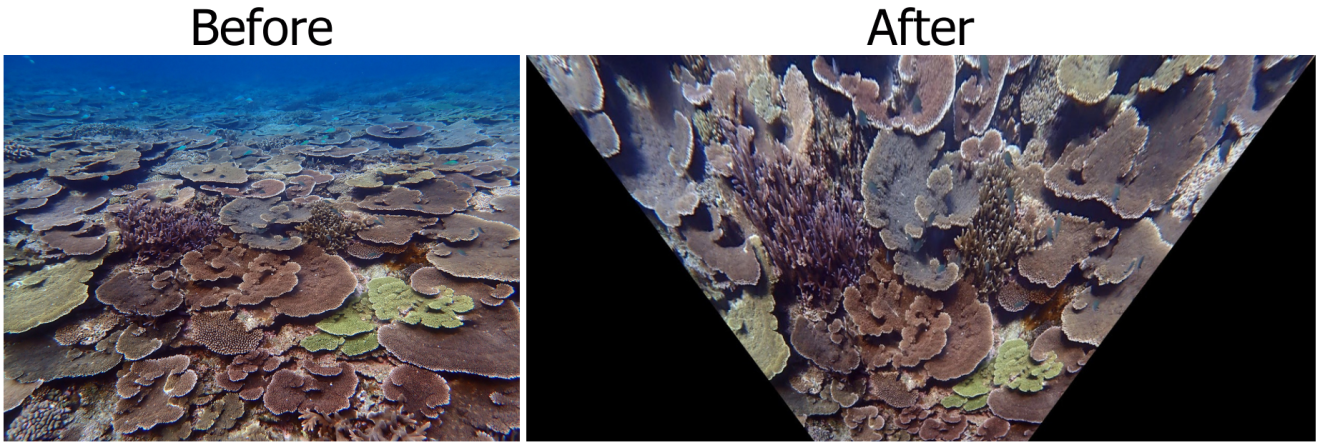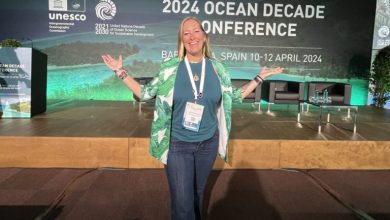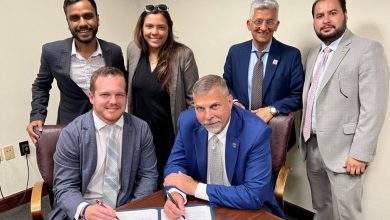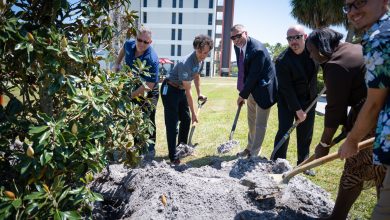New Algorithm Solves Century-Old Problem for Coral Reef Scientists
Breakthrough Allows Scientists to Analyze Recreational Images of Coral Reefs
MELBOURNE, FLA. — An algorithm developed by a Florida Tech graduate student creates a new ecological survey method that allows scientists to unlock important historical data from a vast trove of coral-reef photographs dating back more than a century.
Zachary Ferris, a biological sciences Ph.D. student at Florida Tech, led development of the new computer-vision algorithm called ReScape. ReScape removes the perspective distortion from reefscape images by transforming them into top-down views, thus making all corals the correct size for analysis of reef conditions.
“By recovering the correct size of corals, ReScape allowsscientists to begin extracting ecological data from countless coral reefscape images that have been archived for the past 140 years,” Ferris said. “Now that this data can be extracted, ReScape also enables scientists to begin using reefscape imaging to conduct more extensive surveys because reefscape images capture far more area of the reef than conventional imaging techniques.”
The team published “ReScape: transforming coral-reefscape images for quantitative analysis” April 17 in the journal Scientific Reports.
People around the world have photographed coral reefs, with recreational photographers often capturing picturesque expanses of coral reefs. These countless reefscape images are the largest source of observed coral reef conditions, but until now scientists could not extract data from them because perspective distortion causes corals further from the camera to appear much smaller than their actual size.
By removing the perspective distortion in the coral-reefscape images, ReScape provides the opportunity to unveil immense historical data for coral reefs worldwide.
“The technology powering ReScape was popularized by the autonomous-driving industry in the 1990s,” Ferris said. “ReScape brings the technology underwater for the first time by integrating new techniques that allow the technology to work without knowing the location and orientation of the camera when the image was captured.”
The ReScape algorithm was designed by Ferris, Robert van Woesik, a professor and director of Florida Tech’s Institute for Global Ecology, and Eraldo Ribeiro, an associate professor of computer science at Florida Tech. The development of ReScape was funded by a National Science Foundation grant to van Woesik and a National Science Foundation Graduate Research Fellowship to Ferris.
“By sharing their reefscape images with scientists, recreational photographers now have the unique opportunity to help unveil historical data from coral-reef localities where we have no prior information,” van Woesik said.
He continued, “We hope that ReScape inspires recreational photographers to share their reefscape images with scientists, powering new research to fill gaps in our historical and geographical understanding of coral reefs. Building a comprehensive understanding of coral reefs is critical to efficiently manage and preserve these invaluable ecosystems in an increasingly harsh world.”
To ensure that ReScape is readily accessible to anyone with computer and internet access, the team compiled ReScape into a free, user-friendly app that does not require any coding experience to use.
The article is available at https://doi.org/10.1038/s41598-024-59123-2. Step-by-step instructions for downloading and using ReScape are available at https://github.com/InstituteForGlobalEcology/ReScape.





